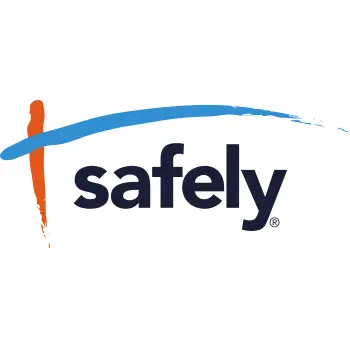A Guide to Short Term Vacation Rental Agreements [with Free Template]
![A Guide to Short Term Vacation Rental Agreements [with Free Template]](https://safely.com/wp-content/uploads/2023/07/vacation-rental-agreement-template-download.jpg)
Navigating the world of short-term vacation rentals can seem like a daunting expedition into uncharted territory. But what if we told you it doesn’t have to be? In this article, we’ll shed light on the intricacies of short-term rental agreements, showing how they can set the stage for building a profitable rental business. We know, rental agreements may not be the first thing that come to mind when getting your business started, but they do bring peace-of-mind and prevent confusion, which is why we’ve gone the extra mile to include a free, easy-to-use template that makes drafting your own agreement a breeze.
So let’s jump right in and make your life simpler, your guests happier, and your property management business the best it can be.
Understanding Short-Term Rental Agreements
A short-term vacation rental agreement is a legally binding document between a property manager and a guest, outlining the terms and conditions of the rental. It typically includes details like rental period, payment information, house rules, cancellation policy, and the responsibilities of both parties. This agreement protects both parties and provides a point of reference in case of disputes. It’s not just a piece of paper—it’s a tool that sets clear expectations, fosters trust, and promotes a smooth rental experience.
Why Use a Short-Term Rental Agreement?
- Clarity – Rental agreements lay down the law—literally. They provide clarity about what is expected from both parties, reducing the likelihood of misunderstandings that can lead to disputes.
- Professionalism – Presenting a well-drafted agreement sets the tone for your business. It shows your guests that you are serious about providing (and maintaining) a high standard of service.
- Legality – Depending on your location, having a short-term rental agreement may be a legal requirement and so is necessary to ensure you comply with regulations. Apart from this, it also gives you a degree of legal protection, for example, if a guest breaks any of the agreed upon rules that they signed up to as part of the agreement, then you have an enhanced legal footing in the event of an insurance claim.
- Ease – Last but not least, with a solid agreement you can sleep easy knowing that the ins and outs of your rental are covered, freeing you up to focus on what you do best—providing an excellent experience for your guests.
Having a short-term rental agreement isn’t just good practice—it’s smart business.
Is a Short-Term Rental Agreement Mandatory?
While there’s no universal law mandating the use of short-term rental agreements, it’s a widespread practice in the industry—and for good reason. It’s all about safeguarding your interests, your property, and your peace of mind.
Depending on your property’s location, there may be a requirement. Your local laws or homeowners association rules may require that you have a short-term rental agreement in place.
Bottom line? While not always legally required, a short-term rental agreement is non-negotiable in smart property management.
Key Components of a Rental Agreement
- Parties Involved – Every agreement should clearly state who’s involved—namely, the property manager and the guest(s).
- Property Details – Include the address of the property, list of amenities, and any specific house rules.
- Rental Period – This specifies the exact dates and duration of the rental period, and includes check-in and check-out times.
- Rental Payment and Fees – How much, when, and how payments should be made, along with any additional fees (such as cleaning or late check-out fees).
- Occupancy Details – This clarifies who will be staying in the property and the maximum occupancy limit.
- Pets, Smoking, and Internet Policies – Clearly lay out your policies regarding pets, smoking, and internet usage.
- Departure Responsibilities – This might include check-out time, cleaning expectations, and key return instructions.
- Liability and Insurance – Spell out who is liable for what, and what kind of insurance coverage is in place.
- Dispute Resolution – Provide a clear plan for handling disagreements, from minor complaints to significant issues.
- Policies and Maintenance – This includes guidelines on property maintenance, and what the guest should do if they discover a problem.
- Refunds Policy – State the conditions under which guests can expect a refund, if applicable.
- Cancellation Policy – Detail the terms, notice period, and any fees associated with cancellation.
Remember, each of these components contributes to a solid, clear agreement and removes ambiguity.
Short-Term (Vacation) Rental Agreement Template
Now that we’ve discussed the importance and components of a short-term rental agreement, let’s make it even easier for you. We’re excited to introduce our free, customizable rental agreement template—designed to save you time and take the guesswork out of creating your own agreement.
Download the free Short Term Rental Agreement Template here.
This easy-to-use template includes the elements of a comprehensive rental agreement, and is also a flexible tool that can be modified to suit your specific needs. Think of it as your foundation, a starting point that you can build on to create an agreement that fits your property like a glove.
Importance of Customizing Rental Agreements
Rental agreements aren’t one size fits all documents. Let’s delve into the importance of customizing these agreements.
- State-Specific Regulations and Requirements – Laws and regulations for short-term rentals can vary significantly from one location to another. By familiarizing yourself with the specific requirements in your state or country, you’ll ensure your agreement is compliant.
- Local Ordinances and Licensing Requirements – Local ordinances might require additional stipulations. These could be about noise levels, waste management, or even specific licensing requirements. Your rental agreement should address these to avoid any legal snags down the line.
- Tailoring Agreements to Specific Needs – Each property is unique, and your rental agreement should reflect that. Customizing your agreement to your property’s specifics—like amenities, layout, or rules—helps set clear expectations for your guests and reduces misunderstandings.
- Legal Implications of Generic or Incomplete Agreements – Using a generic or incomplete rental agreement can lead to legal complications if a dispute arises. Without clear terms tailored to your situation, you might find yourself unprotected or in a legal grey area.
While a template can simplify the process, treat it as a starting point and not the final product. Customize it, check the legalities, and make sure it accurately represents your property and business.
Using the Free Short-Term Rental Agreement Template: Pro Tips
You’re ready to put pen to paper, but before you do, here are a couple of pro tips to get the most out of our free template:
Pro Tip 1: Limit Your Liability
When crafting your rental agreement, be sure to include a well-defined clause that limits your liability for any injuries that might occur on your property. It’s about making sure your guests know they’re responsible for their safety. Pair this with robust insurance coverage, and you’re creating a shield that can protect you in case the unforeseen happens. Remember these essential steps – it’s better to be safe than sorry!
Pro Tip 2: Mitigate Cancellation Risks
Cancellations – they’re the wildcards of short term property management. And while they can’t be prevented, they can be planned for. Consider including a robust cancellation policy in your rental agreement, backed by a security deposit. Make sure to specify the terms under which a guest may cancel, and what part, if any, of their deposit would be forfeited in that scenario. It’s a practical way to mitigate the financial impact of last-minute cancellations, although not all OTA’s allow security deposits. For more on this, check out Safely’s must-read article, Airbnb Security Deposits & AirCover – A Comprehensive Guide.
Pro Tip 3: Understand the Limitations of Damage Liability Waivers
While you may be contemplating the inclusion of a damage liability waiver, don’t be fooled into thinking this will be your safety blanket. While these waivers can transfer some risk to your guests, they are not foolproof.
Here’s the reality: A waiver might make a guest financially responsible for damages, but it doesn’t guarantee they’ll be able to cover the costs. Also, excessive or unfair terms can be unenforceable and may deter guests. Moreover, waivers don’t cover situations beyond guest-related damages, like natural disasters or wear and tear. For these reasons, they do not replace short-term rental insurance.
Best Practices for Rental Agreement Management
Managing your rental agreements is part of building a successful (and profitable) property management business. With this in mind, here’s a practical roadmap to help you put strong foundations in place from the get-go:
- Clear Communication – Transparency is key. Ensure your guests fully understand the terms and conditions of their stay. Don’t just hand them the agreement—walk them through it. Ask them if they have any questions. Be open. Be available.
- Collect Necessary Information – Gather all required guest information and signatures to make the agreement legally binding. This includes contact information, identification, and signed consent to the terms.
- Store Agreements Securely – Treat rental agreements like the important documents they are. Store them securely, whether that’s in a locked filing cabinet or encrypted on a secure server.
- Review and Update – Laws change. So do your properties. Make it a habit to periodically review and update your agreements to keep them relevant and legally compliant.
- Seek Legal Advice – When in doubt, seek professional advice. Legal professionals can provide guidance and help ensure your agreements are up to par with local and national regulations.
Remember, effective rental agreement management isn’t about red tape—it’s about running your business smoothly and protecting your interests.
Mastering Your Rental Agreements
Running a successful short-term rental business is as much about meticulous planning as it is about offering a cozy property. A well-crafted rental agreement lies at the heart of this planning—it’s your safety net, your rulebook, and your communication tool, all in one.
We’ve broken down the essentials, from understanding the what and why of rental agreements, to key components and the importance of customization. We’ve shared pro tips and best practices to help you ace your agreement game. Now, it’s over to you.
Equipped with our guide and free template, you’re well on your way to drafting an agreement that protects your interests, complies with local laws, and provides clarity for your guests. Remember, the devil is in the details—a little time spent on your agreement now can save a lot of headache later.
And finally, let’s not forget the importance of comprehensive short-term rental insurance—it’s your best bet to shield your business and personal liability. Consider it as the critical piece of your property management puzzle.
Who We Are
With the Safely Protection Policy and Safely’s guest screening, you’re protected before, during, and after every reservation. The Safely Protection Policy, through On Demand Insurance, provides up to $1,000,000 in short-term rental insurance for all booking sites, including Airbnb, VRBO, OTAs, and direct booking sites. Safely helps homeowners and property managers grow revenue, reduce risk, and provide a better guest experience.
Why wait, get a quote today.






